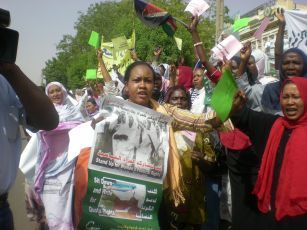Over 1,300 communities across Sudan abandoned FGM: report
April 11, 2023 (KHARTOUM) – Over 1,300 communities across Sudan publicly declared the abandonment of Female Genital Mutilation (FGM) after the amendment to the Criminal Law Article 141, criminalizing the practice, the United Nations Children Fund (UNICEF) said in a report.
With too many children in Sudan exposed to violence, abuse and exploitation, a third of girls aged between 0-14 years have reportedly been subjected to FGM.
According to the United Nations World Health Organization (WHO), FGM comprises all procedures that involve partial or total removal of the external female genitalia, or other injury to female genital organs for non-medical reasons.
It, however, argues that FGM practice has no health benefits for girls and women and cause severe bleeding and problems urinating, and later cysts, infections, as well as complications in childbirth and increased risk of newborn deaths.
In 2022, UNICEF said in its report, the political crisis in Sudan led to delays in the most upstream legislative and policy work, including the government endorsement of the Child Act 2021 and prohibiting marriage before the age of 18.
“Ongoing political instability paired with restrictions on implementing partners have created a restrained implementation environment. Addressing gender inequalities remains critical for Sudan to meet the Sustainable Development Goal 5, gender equality, targets. Sudan is classified in group 5 of Gender Development Index and ranked 141 out of 191 countries in the Gender Inequality Index,” it noted.
Sudan continues to receive refugees from neighbouring Ethiopia, Eritrea, Chad, Central African Republic, and South Sudan, but also from Syria and Yemen in recent years. Humanitarian needs continued to grow, driven by underlying factors including the economic crisis, food insecurity, flooding, disease outbreaks and intercommunal violence. The protection of children from violence, exploitation, abuse, and neglect is repeatedly challenged within such complex emergencies.
According to UNICEF, its child protection programme received only 20 per cent of the funding required to meet its development and humanitarian targets.
“While the upstream legislative and policy work was constrained and most reforms including the Child Act 2021 were put on hold, a key success was the Government endorsement of the costed action plan on FGM and child marriage and a related communication strategy,” partly reads the 2022 annual report.
Meanwhile, UNICEF said women-led movements were supported in advocacy for girls and women’s rights, creating more empowered future generations.
As such, it stated, Simple Spatial Survey Method Report 2018 indicated a decrease in the prevalence of FGM from 89 per cent in 2010 to 83.9 per cent in 2018.
The agency further said its support to community dialogue, social mobilization services and advocacy enabled over 200 communities within 20 localities to engage in abandoning FGM.
In Sudan, almost 9 in every 10 women have reportedly been subjected to FGM practices, despite a law that criminalizes the practice in existence since July 2020.
(ST)

